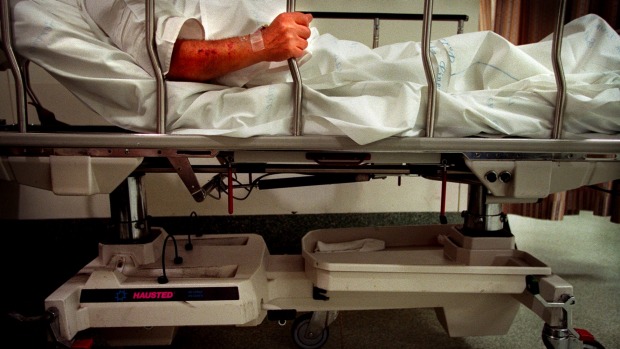
With annual deficits of more than $700 million, Victoria’s 87 public hospitals are facing a financial crisis, with the state’s financial watchdog warning that some are unable to pay their bills.
A report by the Victorian Auditor-General has found the state’s hospitals are facing short- and long-term financial risks, with the situation so dire the Department of Health has been forced to issue letters of support so that 31 hospitals can continue to operate as a “going concern”.

The financial crisis is so serious that acting auditor-general Peter Frost has warned that the quality and variety of health services on offer to the public could be undermined.
“Current revenue levels create longer-term financial sustainability risks, and could ultimately impact the quality and variety of services offered to the public,” Dr Frost said.
He said the department of health should do more to help public hospitals become more sustainable and upgrade equipment and buildings.
“Collectively, this highlights public hospital boards’ inability to adequately align their responsibilities to report a financially sustainable entity, when they are unable to cover their operating expenses with their operational revenue.”
The report follows a budget decision by the Commonwealth to link federal funding for hospitals to inflation instead of directly to activity in hospitals from 2017.
That decision is expected to slice $17.7 billion from Victoria’s health budget over 10 years.
It also follows revelations about higher-than-average infant mortality rates at the Bacchus Marsh and Melton Regional Hospital. Other hospitals, particularly in Melbourne’s outer west, are also under pressure from soaring population growth.
The auditor-general’s report said that, in the past financial year alone, the hospital sector was in deficit by $775 million, up from $741.5 million for the previous year.
This has given rise to an extraordinary situation where some hospitals have been unable to pay their bills.
“This has given rise to short-term cash flow issues at individual public hospitals, where they had taken actions such as delaying the payment of creditors or inappropriately using specific purpose funds to pay for operations costs,” the report said.
“This indicates that the current funding model is not sufficiently sustainable for those hospitals.
The report said hospitals were mainly funded by government grants, which account for 82.6 per cent of their total revenue.
